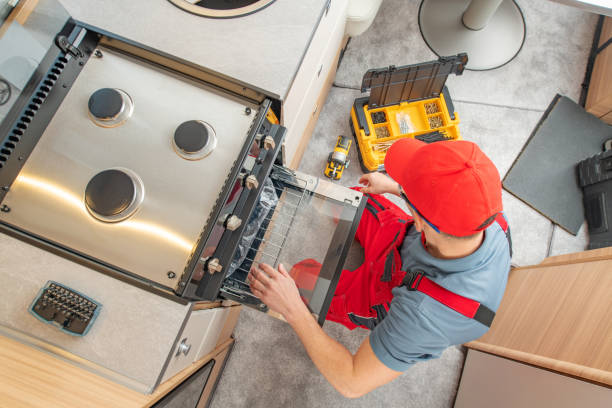The right HVAC system can make a difference in creating a comfortable, energy-efficient home. It is especially important when you add on to your house since the heating and cooling requirements may differ. This guide explores the most important considerations when selecting an HVAC system to add to your home. Furnace service is also a crucial aspect of ensuring longevity and efficiency for your heating system. It is important to choose the right HVAC system when adding a new home addition. This will ensure maximum comfort and efficiency.
Consider these key factors to help you make the right decision:
Assess the Size and Purpose of the
Decide on the intended size and purpose of the addition. Understanding the function of a space is important because different rooms have different heating and cooling requirements.
Standalone or Integrated System:
Choose whether you want to integrate your new HVAC System into the existing system or go with a standalone system. Integration is more cost-effective, but standalone systems are more flexible.
Energy Efficiency:
To minimize your utility bills, choose an energy-efficient heating and cooling system. For furnaces, look for high AFUE ratings and SEER (Seasonal Efficiency Ratio) ratings.
Ductwork considerations:
If the existing ductwork is not able to handle the added load, it may be necessary to upgrade the ductwork. If your current system is too small, you may need to upgrade it or look at ductless systems like mini-splits.
Zoning Options
Consider zoning, particularly if your home addition requires heating and cooling that are different from the rest of your house. Zoning is a great way to control the temperature of other rooms and improve efficiency.
Type of HVAC system:
Choose the HVAC system that is best suited to your needs. Central air conditioning, heat pump systems, furnaces, and ductless mini splits are all common options. Each system has advantages, and the selection depends on factors such as climate, budget, and personal preferences.
Calculation of the Load:
Calculate the load to determine the heating and cooling needs for the new space. The load calculation is influenced by factors such as windows, insulation, and the local climate. This will help you to size your HVAC system correctly.
Professional Consultation
Ask HVAC professionals to assess your situation. They can offer valuable insight, recommend appropriate systems, and ensure proper installations.
Budget considerations:
Budget for HVAC installation and any modifications to the existing infrastructure. It’s important to invest in reliable systems but also consider the long-term benefits of energy efficiency.
Warranty and Maintenance:
Check the warranties and maintenance requirements for the HVAC system you choose. A system that comes with a comprehensive guarantee can give you added peace of mind.
Local building codes:
Be familiar with the local building codes and regulations. Compliance is the process of ensuring that an installation meets all safety and legal requirements.
Consult HVAC professionals to help you choose the best system for your new home. This will provide comfort and efficiency in years to come.
Conclusion
When choosing the best HVAC system for an addition to your home, you must carefully consider a number of factors. These include the size of the room and its purpose, as well as energy efficiency and budget. Homeowners can ensure that their new living space is comfortable and efficient by conducting an in-depth assessment, considering the zoning options, and consulting HVAC professionals.
